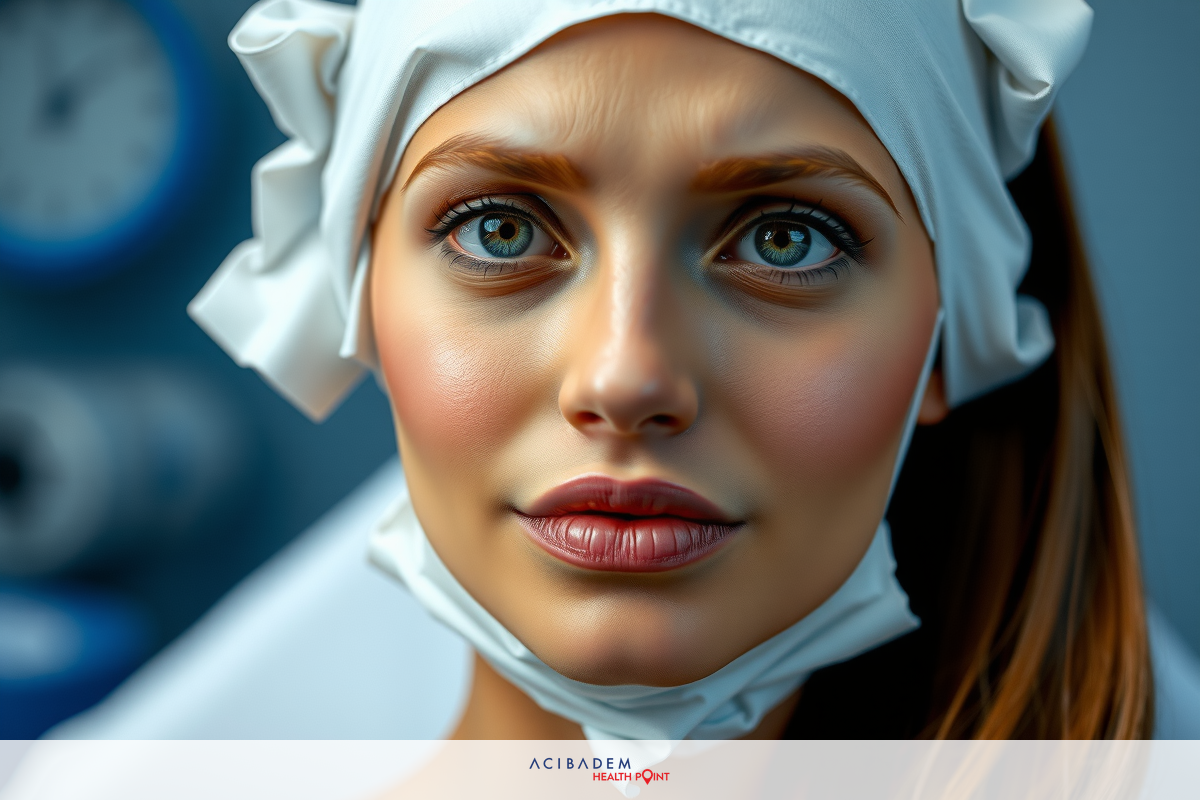What Causes Bruising After Rhinoplasty
What Causes Bruising After Rhinoplasty Rhinoplasty, often results in some degree of bruising. This postoperative symptom is typically caused by trauma to blood vessels during the procedure. The severity and duration of these discolorations can vary greatly depending on several factors including surgical techniques used and individual healing responses.
Why this happens and what you can do about it is crucial for those undergoing rhinoplasty. Postoperative care plays a vital role in minimizing bruising and supporting overall recovery. Following your surgeon’s instructions closely regarding rest, wound care, elevation could go a long way in ensuring a smooth recovery journey with minimal bruising.
Details of Rhinoplasty
Rhinoplasty, or nose reshaping surgery, is a surgical procedure that changes the structure of the nose to improve its function or appearance. It’s an operation that requires precision and expertise due to the complex anatomy of the nasal area. The process involves making incisions inside the nostrils to access bone and cartilage for remodeling.
During rhinoplasty, surgeons reshape bones and cartilage in your nose according to your desired results. You may seek this type of surgery for various reasons: perhaps you’re not happy with how your nose looks; maybe you have breathing problems caused by structural abnormalities within your nasal passage; or possibly you’ve had some kind of injury that altered your nose’s shape.
The healing process post-rhinoplasty is as significant as the surgery itself when it comes to achieving optimal outcomes. Healing can influence both functional and aesthetic outcomes since bruising often accompanies this type of facial surgery. Postoperative care includes steps like proper wound management and sufficient rest, which are essential in controlling bruising during recovery.
While rhinoplasty aims at improving appearance or function (or both), one must be prepared for certain side effects such as bruising post-surgery. This occurrence is generally attributed to trauma inflicted on blood vessels during surgical manipulation but varies depending on individual factors like personal health status and age among others.
Common Causes of Bruising
Bruising often follows rhinoplasty as a natural response to the trauma sustained by blood vessels during the operation. This is because, in order to reshape the nose’s structure, surgeons have to manipulate bone and cartilage which inevitably impacts surrounding tissues. The extent of bruising depends on several factors including surgical techniques employed, individual healing responses, and whether any extensive work was done on nasal bones.
During surgery, when incisions are made within the nostrils or at times across tissue separating nostrils (in an open rhinoplasty), there’s potential for damage to small blood vessels leading to leakage into surrounding areas. This leaked blood appears as darkened patches beneath skin surface – what we recognize as bruises. Besides surgical approach other contributing elements could be patient’s age, general health status or even genetic predisposition towards easy bruising.
It’s worth noting that while some degree of post-rhinoplasty bruising is inevitable in most cases it should gradually subside over time with proper care and rest. Each person heals differently so recovery timelines can vary greatly but typically significant improvements should be visible after first two weeks following surgery date if correct procedures were followed during both surgery and postoperative period. In case of persistent severe

discoloration it might be advisable for patients consult their doctor ensure no complications arisen in course healing process.
What Causes Bruising After Rhinoplasty: Promoting Postoperative Healing
Postoperative healing is an important aspect of any surgical procedure, including rhinoplasty. The process of recovery and healing can significantly impact the final result, so it’s crucial to follow all postoperative care instructions provided by your surgeon meticulously. This includes steps like proper wound care, getting enough rest, and keeping your head elevated as much as possible.
Wound care plays a critical role in preventing infection and promoting faster healing after surgery. It involves cleaning the surgical area gently with recommended solutions or wipes, not touching the area excessively, and avoiding certain activities that could cause strain or pressure on your nose. Additionally, sufficient rest is key to allowing your body time to repair itself effectively. During this period of recuperation – usually within first two weeks post-surgery – it’s advisable that patients refrain from vigorous physical activity.
Another crucial point for swift recovery is elevation – specifically maintaining head higher than heart level during initial days following operation; this helps reduce
swelling bruising around nose eyes which commonly occur due procedures performed on nasal bones cartilage. Lastly strict adherence surgeon’s advice cannot be overstressed whether about medication intake appointment schedules potential lifestyle modifications (such as quitting smoking) necessary ensure optimal outcomes none these aspects should taken lightly considering they contribute overall success rhinoplasty experience both terms function appearance.
Frequently Asked Questions
What is the typical healing time after rhinoplasty?
Healing times can vary significantly from person to person, but generally, most of the major swelling and bruising subsides within two weeks following surgery. However, it may take up to a year for your nose to fully settle into its new shape.
How can I reduce bruising after my procedure?
There are several ways you can help minimize bruishing post-surgery. These include taking adequate rest, keeping your head elevated especially in the first few days after surgery and adhering strictly to care instructions provided by your surgeon.
Are there any specific foods or medications I should avoid before and after my rhinoplasty?
Certain medications like aspirin or ibuprofen which thin blood could potentially increase likelihood of bleeding hence they're usually discouraged pre- post-operatively; same applies certain supplements such as vitamin E fish oil. Your surgeon will provide comprehensive list items steer clear during consultation phase ensure smooth recovery process.
Is it normal for my nose to feel numb after rhinoplasty?
Yes, some degree of numbness is common following a rhinoplasty procedure due disruption nerves during operation however sensation should gradually return over months as healing progresses.











